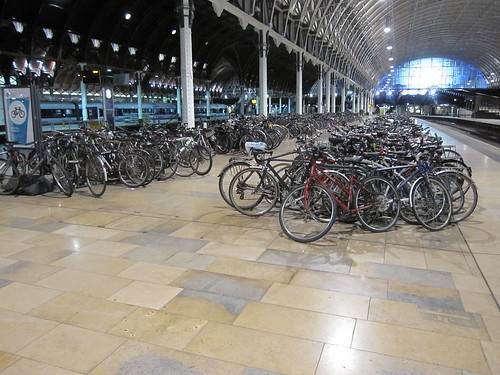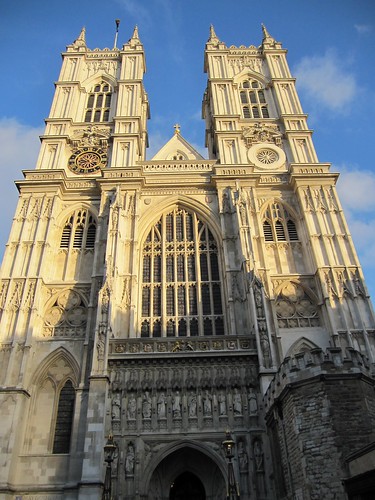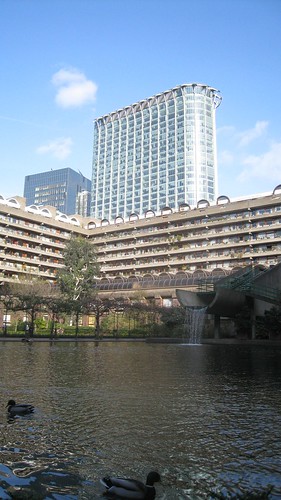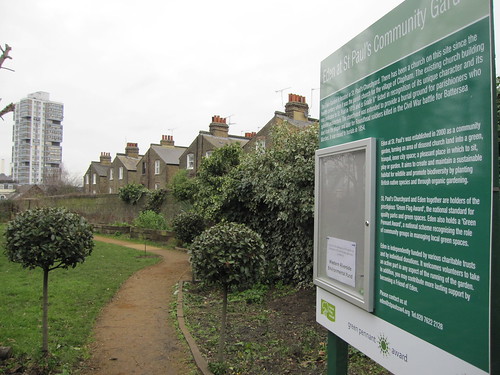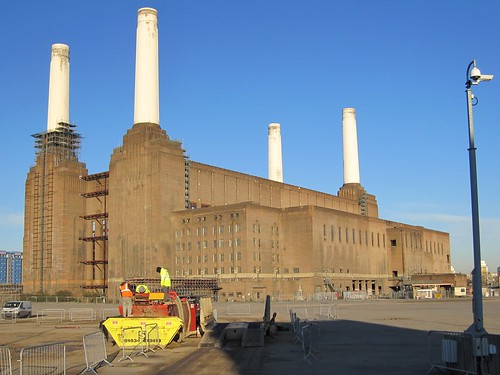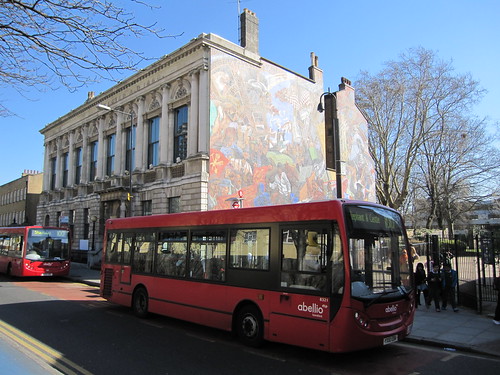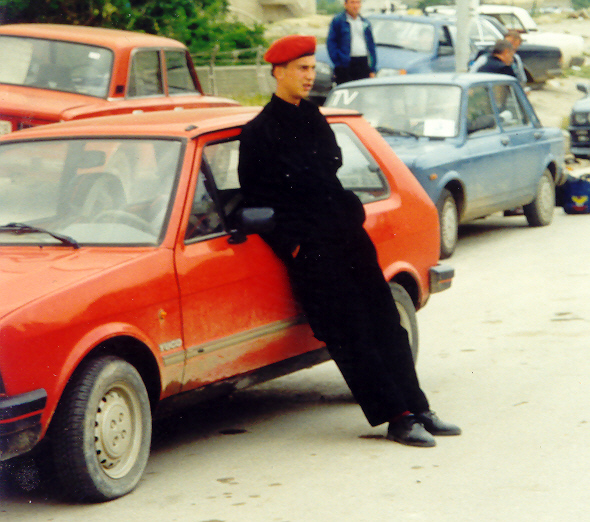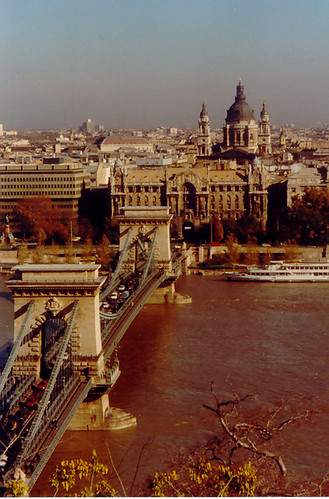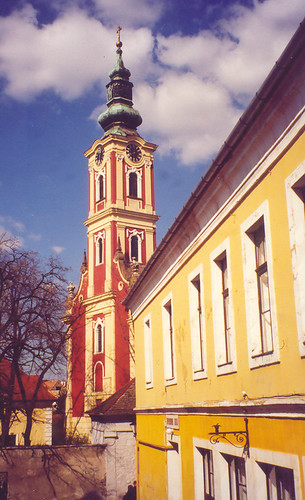It was one morning in December that I came across the driver
who, because I wouldn’t let him overtake me, came close to driving over me
instead. I had turned into a short, one-way street near my house when he swung
in menacingly close behind. I felt no special worry, however. The road’s speed
humps, which slow cars more than they do my bicycle, mean that, even when
pulling my son in a trailer, most mornings I pull away from cars behind. I’m
far more often stuck behind slower-moving cars in front.
But that was reckoning without this driver’s deep-seated
need to overtake. Keeping his foot on the accelerator and the car in a low
gear, he maintained his speed, unslackened, over the first speed bump, staying a
metre or so behind me. I quickly found myself trapped in an urban cycling
version of the film Speed. The road was so narrow, and so clogged with parked
cars, that I couldn’t get out of the driver’s path. He was so close, however,
that, if I’d slowed down to turn into the few vacant parking spaces, I could easily
have gone under his wheels. Just as Keanu Reeves’ character in Speed has to
keep a bus travelling at more than 50mph to stop a bomb going off, I had to stay
riding fast enough for long enough, without skidding on the slippery speed
bumps, that my pursuer wouldn’t hit me. He underlined his point by leaning out
of his window to yell abuse.
It’s one of motorists’ most common complaints about cyclists
– along with the perennial (inaccurate) claim that we all ignore red lights –
that bikes hold them up and get in their way. But my encounter highlights how
some motorists feel something far stronger than a desire to avoid delay. My
pursuer put himself close to me only by a deliberate, provocative, highly
dangerous effort. It’s not hard to read into his behaviour – and that of quite
a few other motorists and pedestrians I’ve encountered – a deeper set of
reactions. It’s inherently unlikely, after all, that bicycles – vehicles that
take up little road space and form a minority of road vehicles in most
developed countries – are a genuinely significant cause of delay. I have
certainly heard more cyclists complain about a journey’s being prolonged by the
volume of cars than I have motorists complain about the same because of the
volume of bikes.
Some people’s existential irritation about sharing the road
– or a cycle path - instead takes me back to my meeting with an embittered Protestant
14 years ago in a field outside Portadown, one of Northern Ireland's strongholds of
Protestant loyalism to the United
Kingdom
The parallel pedestrian path, nevertheless, was only a
couple of metres away. There was only one designated cycle route the way I needed to
go. The man seemed as infuriated at the devotion of space to a cycle path as
Irate Minivan Man was at my taking up space on the road. It is one of several
similar incidents I’ve encountered on paths across the Common.
On a road just by the common, meanwhile, I pulled in one Saturday to the space devoted to bikes at a set of traffic lights. I was pulling the Invisible Visible Boy in a trailer and pulled towards the centre of the road to let the Invisible Visible Woman into the area with the Invisible Visible Girl and her trailer bike. Incensed by my using the space for its designated purpose, a well-spoken, middle-class motorist pulled forward beside me, rolled down his window and said, with an air of deliberate threat: “If you stay at the side of the road, you won't get hit.” When the lights turned green, he accelerated away so fast his tyres squealed. Interestingly, pedestrians generally avoid obstructing the several roads that cut across and spoil the Common the way some feel compelled to do on the cycle paths.
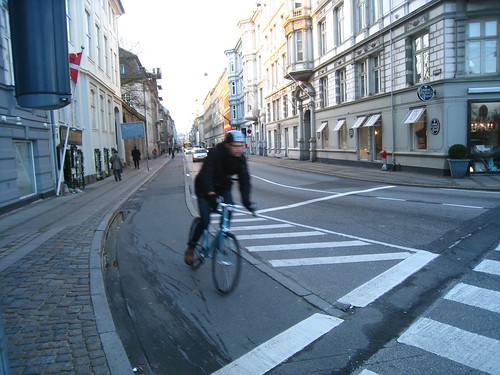 |
| A cyclist on Copenhagen's generously-proportioned cycle lanes: the Irate Minivan Man of Brixton Hill might not appreciate this charming Scandinavian city. |
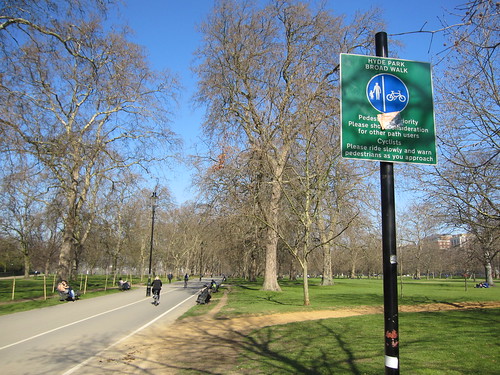 |
| Cyclists, it seems, don't actually have priority on this cycle path in Hyde Park,according to the sign. But, well, why would they? |
His complaints were similar to ones I've heard from Serbs in Bosnia-Herzegovina about the country’s
being controlled by Bosniaks, the country’s Muslims. A colleague once told me with
distaste about how a white South African mining executive bitterly suggested to her that, given another life, he’d come back as a black woman. His theory – not, I
suspect, based on a thorough investigation of women’s lives in the rough bits
of Soweto
All such complaints reflect, it seems to me, the powerful human instinct for those who belong to
privileged groups to believe their status a reflection of their own group’s
merit. If those privileges are reduced – or extended to another, excluded group
– the reaction is often similar. The formerly-downtrodden – whether of a
different ethnic group or simply using a different kind of vehicle – are seen as bumptious, difficult, undeserving usurpers.
Which brings me back to the Irate Minivan Driver of Brixton
Hill.
I can only imagine that my pursuer, if he has been driving
around central London London
Even for those drivers I genuinely force to slow down, however, it
is rare for a delay to stretch beyond milliseconds into seconds. I have, as I have detailed in a previous blog, been abused by an angry motorist because I
had delayed her arrival at the end of a traffic jam. The sheer numbers of motor
vehicles – which really do cause congestion – have risen sharply in recent
years in many big cities at the same time as cycling numbers. The vehicles,
both parked and on the move, have also grown steadily larger, exacerbating
their congestion-causing effect. In a rational world, my minivan-driving hunter
would have been just as angry with the parked cars, the real reason it was
unsafe to let him pass. Any doubts I might have had about motorists' attitude on this matter were dispelled when I read a comment on a (since deleted) post on the excellent Cycling Lawyer blog. The commenter complained about how s/he particularly worried about passing the biggest, fittest cyclists because they tended to outpace his or her car up hills.
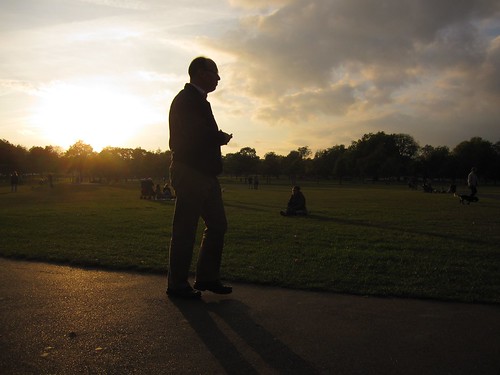 |
| Clapham Common: pedestrians can get just as angry as minivan drivers |
Yet an incident a couple of years ago on Clapham Common, a
couple of kilometres from where I encountered the Irate Minivan Driver,
suggests the real root of some of the resentment. I was cycling across the
common, on a designated cycle path, when I encountered a man, with his back to
me, pushing a baby buggy. I slowed down and, because he was turned away, rang
my bell several times, to no effect. “Don’t worry – I heard you,” he eventually
shouted over his shoulder, refusing even to look round. There was a whole
common for me to cycle across, he suggested. He wouldn’t get out of my way.
On a road just by the common, meanwhile, I pulled in one Saturday to the space devoted to bikes at a set of traffic lights. I was pulling the Invisible Visible Boy in a trailer and pulled towards the centre of the road to let the Invisible Visible Woman into the area with the Invisible Visible Girl and her trailer bike. Incensed by my using the space for its designated purpose, a well-spoken, middle-class motorist pulled forward beside me, rolled down his window and said, with an air of deliberate threat: “If you stay at the side of the road, you won't get hit.” When the lights turned green, he accelerated away so fast his tyres squealed. Interestingly, pedestrians generally avoid obstructing the several roads that cut across and spoil the Common the way some feel compelled to do on the cycle paths.
Yet such bizarre, ingrained attitudes aren’t immutable. It was
once held axiomatic that very little could be done to reduce drinking and
driving – a problem that has been sharply reduced in many countries through
consistent, unequivocal public information campaigns. Only a few years ago,
prejudice against gays and lesbians went unchallenged. Before that, broad
generalisations about blacks or Asians were accepted in polite society.
Such progress looks some way off for cyclists, however. Until it arrives, I’ll have to hope encounters with the likes of Irate Minivan Man end as relatively harmlessly as that one eventually did. After around 150 frantically-pedalled metres, a long break in the cars let me pull over. He accelerated past me and screeched off round a junction. He was, I imagine, frustrated. It requires self-discipline for any group to tolerate ceding territory to another. But nothing I did could have cost him more than a few moments. Had I slipped on one of the speed bumps or otherwise lost my nerve, the consequences of his driving for me could have been many, many times further-reaching.
Such progress looks some way off for cyclists, however. Until it arrives, I’ll have to hope encounters with the likes of Irate Minivan Man end as relatively harmlessly as that one eventually did. After around 150 frantically-pedalled metres, a long break in the cars let me pull over. He accelerated past me and screeched off round a junction. He was, I imagine, frustrated. It requires self-discipline for any group to tolerate ceding territory to another. But nothing I did could have cost him more than a few moments. Had I slipped on one of the speed bumps or otherwise lost my nerve, the consequences of his driving for me could have been many, many times further-reaching.

